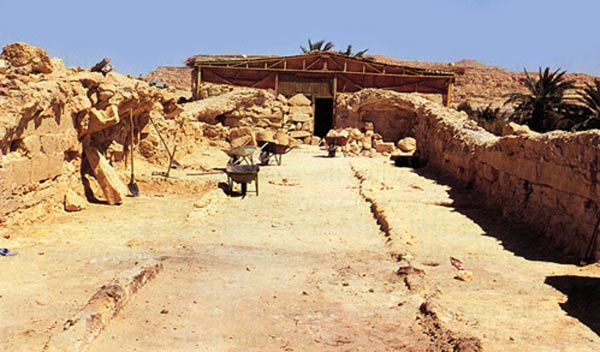
Archaeologists and historians have long wondered where the final burial place of Ancient Greek king Alexander the Great lies – but when one researcher claimed to have found his tomb, a diplomatic row erupted.
Archaeologist Liana Souvaltzi claims she discovered the real tomb of Alexander 20 years ago in Egypt, but has been blocked by the Greek and Egyptian governments ever since.
She specialises in the history of Alexander the Great, and supported the hypothesis that his wish for his body to be buried in the well-known temple of the supreme Egyptian god Amun Ra, in the Oasis of Siwa, had been honoured. The location was of huge significance in the ancient world, and is where Alexander was ‘confirmed’ as the son of Zeus – the legendary god of Greek mythology.
In 1984, Ms Souvaltzi applied to the Egyptian authorities for permission to excavate the area of the Siwa Oasis, located around 30 miles east of the Libyan border, and 350 miles from Cairo. Five years after the application had been submitted, in 1989 permission was granted and excavations began.
Ms Souvaltzi and her team, who was especially accredited to conduct their work in Egypt, found an entrance way adorned by lion statues in what was later found to be a vast and historically significant monument – a grand, 525 square-meter Hellenistic royal tomb.
The lion heads spotted on the site suggested the burial place was that of an important figure, and on top of it, among the inscriptions and carvings was a symbol of Amun Ra and Greek ornaments, meaning the tomb could well house Alexander the Great’s remains.
One of the on-site inscriptions, which Souvaltzi believes was written by ancient mathematician and historian Ptolemy, one of Alexander’s close acquaintances and companions, refers to the elaborate transportation of the body to that tomb, despite no concrete name having been mentioned.
In 1995, Alexander the Great’s tomb was announced to have been found, although claims have since persisted of new research and other successful efforts to this end.
Souvaltzi told Greek media at the time that she had “no reservations about whether this is Alexander’s tomb”.
“But I am speaking to every Greek all over the world. I want every one of you to feel proud, because Greek hands have found this very important monument”, she praised her Greek team’s effort, sparking a backlash from the Greek government, deeply embroiled in nationalist controversies.
Then-Prime Minister Costas Simitis urged the team to stop their research in Egypt and sent a Greek Embassy advisor to ask the Egyptian government to withdraw Ms Souvaltzi’s permission to excavate in the area, thereby blocking the work.
Nationalist tensions still ran high in the region, the Greek government called a stop to the excavations.
Even now, Ms Souvaltzi is fighting for the right to continue her excavation at the site.
Alexander the Great, the legendary king of Macedonia and a famed military commander, conquered an empire stretching from the Balkans to modern-day Pakistan, by the age of 30.
*This article first appeared on Express UK
